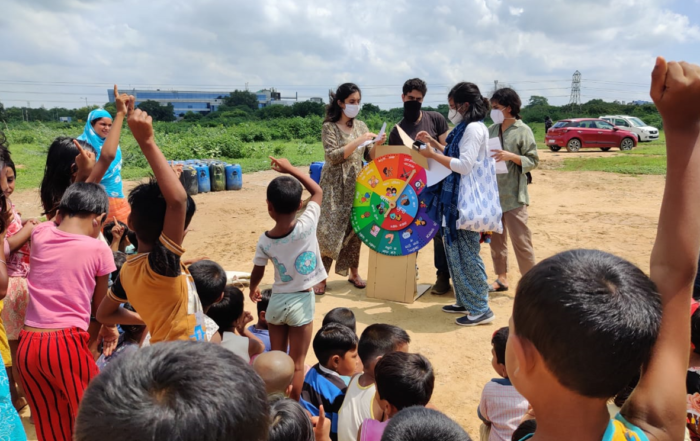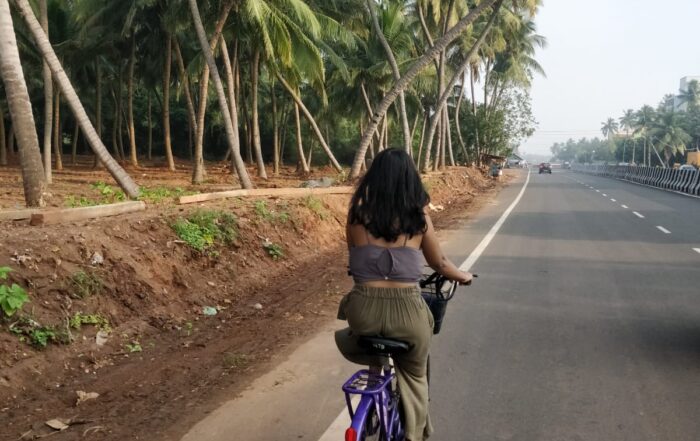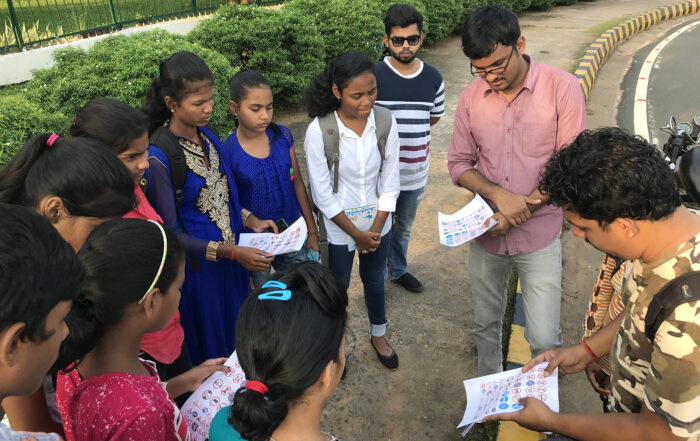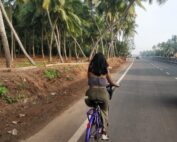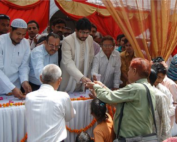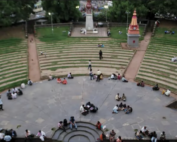“Build Back Better” is a policy slogan that has had a lot of currency in the last year and in fact was the rallying cry of the 2020 Joe Biden campaign.
For the World Bank, the path to “resilient recovery” follows these steps: (1) humanitarian relief, (2) restoration of basic services, (3) reconstruction and asset recovery, and (4) building back better, to improve existing systems.
The Organization for Economic Cooperation and Development (OECD) also invoked the phrase BBB late last year in the context of post-COVID-19 relief. The OECD encourages governments to respond to today’s global environmental threats like climate change and biodiversity loss as they get back on their feet through recovery packages. Covid-19 recovery and green recovery are concurrent problems that are part of a unified problem. The OECD warns of greater social and economic damage due to neglecting those issues.
“A central dimension of building back better is the need for a people-centred recovery that focuses on well-being, improves inclusiveness and reduces inequality.”
Placemaking India’s proposition is to “Unbuild Back Better,” which puts not so much major physical infrastructure but small-scale interventions, communities and ecology at the heart of recovery.
Our series of blogs, powered by The Smart Citizen, showcases the ideas and heroic work of members and partners before and during the pandemic in India. Many extended themselves with humanitarian relief but some also continued to work strategically towards health, equity and inclusion in the public realm.
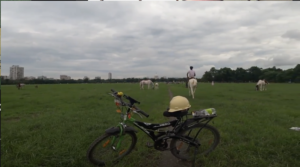
Covid Galvanizes Kolkata’s Cycling Community

Rights to the City and The Adda Experiment

Placemaking in South Asia: The Urban Jam Series
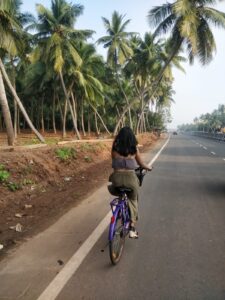
Cycling Accelerates India’s Green Shift
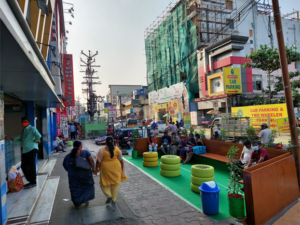
Coimbatore Creates Case for Tactical Urbanism
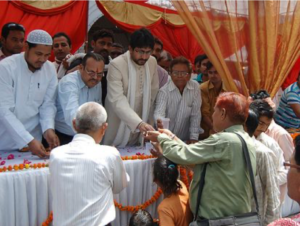
Intangible Heritage and the Soft Power of Places
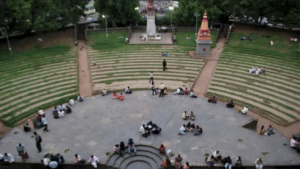
Conserving Built Heritage for a Post-Pandemic Future
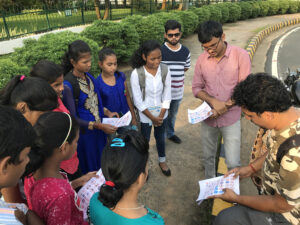
Bhubaneshwar Lights the Path
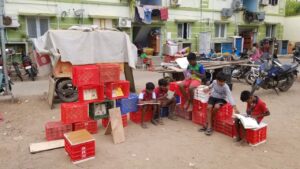
Chennai Children have their day!
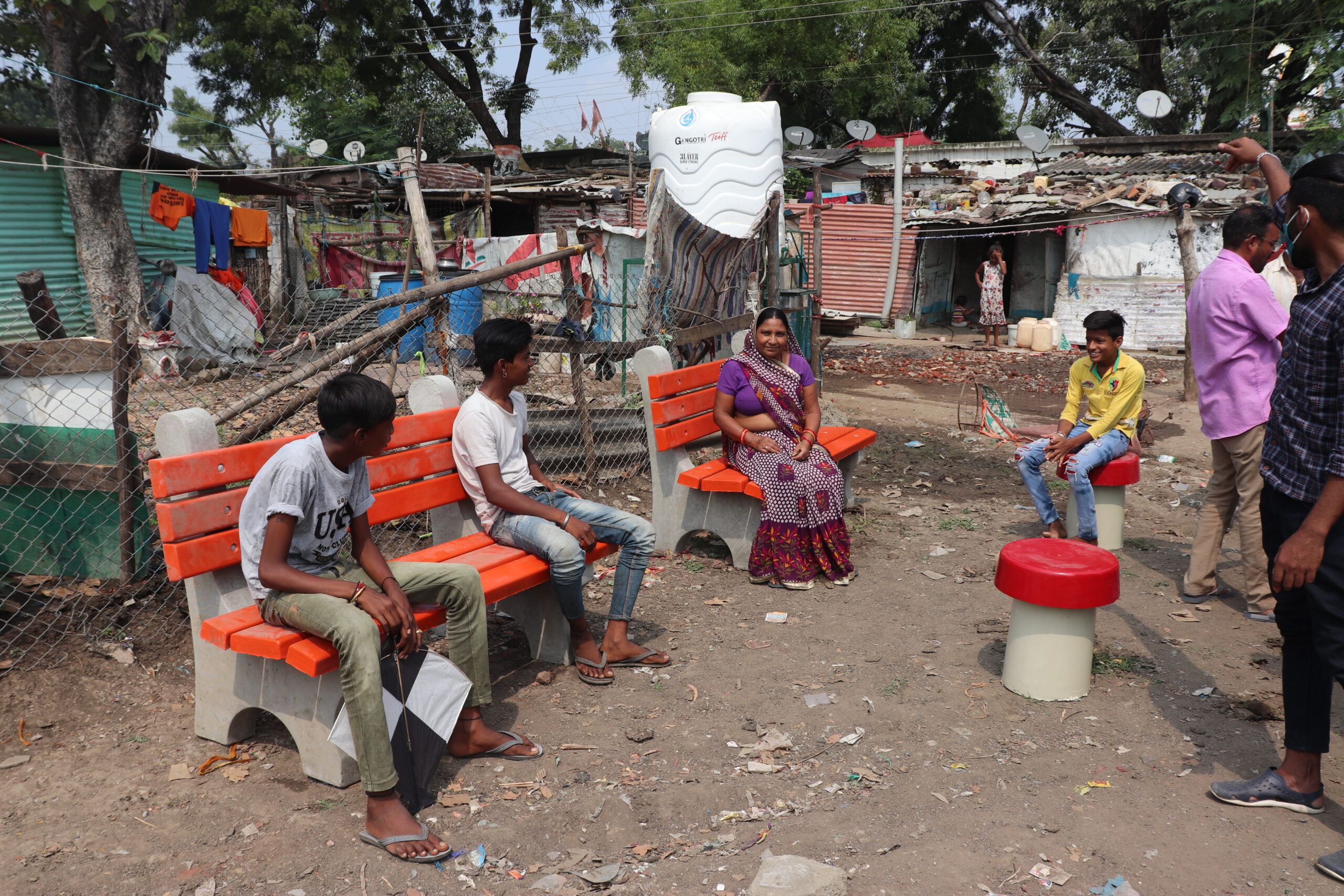
Migrant workers take health in their own hands
Covid Galvanizes Kolkata’s Cycling Community
Covid left streets relatively clear of traffic, emboldening Calcutta's cyclists who have been banned since 2014 from the 64 arterial roads by the West Bengal government and Kolkata Police. A keen proponent of cycle-safe infrastructure in the City of Joy is Sukrit Sen, Placemaking India's Bengal Hub leader, who takes us on a whirlwind tour of his favourite spots in Kolkata on his bicycle.
Rights to the City and The Adda Experiment
A foursome of 20-something architects struggled against the odds to give rights to the city to a neglected community in an affluent neighbourhood of the nation's Capital.
Placemaking in South Asia: The Urban Jam Series
Placemaking in South Asia shares a common history, culture and ecology. In collaboration with Peacemakers Pakistani, Placemaking India kicked off a year-long series of online conversations beginning and concluding on Independence Day under Urban Jam, an initiative for collective learning with the Indic diaspora. The objective of the series was to find common ground on urban issues and engage in mutual discovery of the opportunities and challenges of the public realm in pairs of cities across the border.
Cycling Accelerates India’s Green Shift
Cycling as a way of escaping domestic confinement during the first lockdown fortuitously translated for Placemaking India's Chennai-based Cycling Ambassador, Venugopal AV, into supporting a mission to make the non-motorised two-wheeler a more visible and substantial fixture in the modal mix on India's thoroughfares.
Coimbatore Creates Case for Tactical Urbanism
Tactical urbanism faces its share of challenges. Kovai's super-busy Cross Cut Road got an exuberant makeover, when Placemaking India's Tamilnadu Hub Leader, Pavithra Sriram of Design Co:Lab implemented a design brief by IBI Group to create room for shoppers and cyclists to use the road safely.
Intangible Heritage and the Soft Power of Places
Even during tensed and politically charged times, Lucknow is one of the few cities to have not faced any major communal riots. The secret lies in the intangible heritage it has inherited, says Placemaking India Lucknow leader Ananya Asthana.
Conserving Built Heritage for a Post-Pandemic Future
Conserving heritage to bring communities together and stimulate economic regeneration is an important consideration in the post-pandemic scenario in India. In conservation, the past should interact with people's daily lives.
Bhubaneshwar Lights the Path
The Urban95 initiative asks, “If you could experience the city from 95cm – the height of a 3-year-old – what would you change?” Devshri Shah, the Gujarat Hub Leader shares the child-friendly initiatives of Bhubaneshwar city in Odisha.
Chennai Children have their day!
Chennai Children have their day! Read how Dhanya Rajagopal from PLUS worked with the community of Ayodhya Nagar in Chennai to revamp the neighbourhood by optimising children’s mobility and creative learning through play.
Migrant workers take health in their own hands
Placemaking India Regional Leader, Phaeba Thomas shares her experience about teaming up with Caring For India(CFI) to support the residents of low-income settlements to access public spaces and ensure proper hygiene in Bhopal.
Covid Galvanizes Kolkata’s Cycling Community
Covid left streets relatively clear of traffic, emboldening Calcutta's cyclists who have been banned since 2014 from the 64 arterial roads by the West Bengal government and Kolkata Police. A keen proponent of cycle-safe infrastructure in the City of Joy is Sukrit Sen, Placemaking India's Bengal Hub leader, who takes us on a whirlwind tour of his favourite spots in Kolkata on his bicycle.
Rights to the City and The Adda Experiment
A foursome of 20-something architects struggled against the odds to give rights to the city to a neglected community in an affluent neighbourhood of the nation's Capital.
Placemaking in South Asia: The Urban Jam Series
Placemaking in South Asia shares a common history, culture and ecology. In collaboration with Peacemakers Pakistani, Placemaking India kicked off a year-long series of online conversations beginning and concluding on Independence Day under Urban Jam, an initiative for collective learning with the Indic diaspora. The objective of the series was to find common ground on urban issues and engage in mutual discovery of the opportunities and challenges of the public realm in pairs of cities across the border.
Cycling Accelerates India’s Green Shift
Cycling as a way of escaping domestic confinement during the first lockdown fortuitously translated for Placemaking India's Chennai-based Cycling Ambassador, Venugopal AV, into supporting a mission to make the non-motorised two-wheeler a more visible and substantial fixture in the modal mix on India's thoroughfares.
Coimbatore Creates Case for Tactical Urbanism
Tactical urbanism faces its share of challenges. Kovai's super-busy Cross Cut Road got an exuberant makeover, when Placemaking India's Tamilnadu Hub Leader, Pavithra Sriram of Design Co:Lab implemented a design brief by IBI Group to create room for shoppers and cyclists to use the road safely.
Intangible Heritage and the Soft Power of Places
Even during tensed and politically charged times, Lucknow is one of the few cities to have not faced any major communal riots. The secret lies in the intangible heritage it has inherited, says Placemaking India Lucknow leader Ananya Asthana.
Conserving Built Heritage for a Post-Pandemic Future
Conserving heritage to bring communities together and stimulate economic regeneration is an important consideration in the post-pandemic scenario in India. In conservation, the past should interact with people's daily lives.
Bhubaneshwar Lights the Path
The Urban95 initiative asks, “If you could experience the city from 95cm – the height of a 3-year-old – what would you change?” Devshri Shah, the Gujarat Hub Leader shares the child-friendly initiatives of Bhubaneshwar city in Odisha.
Chennai Children have their day!
Chennai Children have their day! Read how Dhanya Rajagopal from PLUS worked with the community of Ayodhya Nagar in Chennai to revamp the neighbourhood by optimising children’s mobility and creative learning through play.
Migrant workers take health in their own hands
Placemaking India Regional Leader, Phaeba Thomas shares her experience about teaming up with Caring For India(CFI) to support the residents of low-income settlements to access public spaces and ensure proper hygiene in Bhopal.








